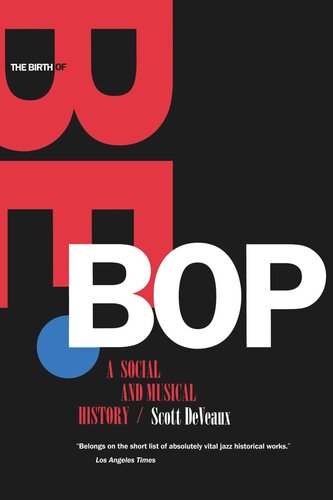

Most ebook files are in PDF format, so you can easily read them using various software such as Foxit Reader or directly on the Google Chrome browser.
Some ebook files are released by publishers in other formats such as .awz, .mobi, .epub, .fb2, etc. You may need to install specific software to read these formats on mobile/PC, such as Calibre.
Please read the tutorial at this link: https://ebookbell.com/faq
We offer FREE conversion to the popular formats you request; however, this may take some time. Therefore, right after payment, please email us, and we will try to provide the service as quickly as possible.
For some exceptional file formats or broken links (if any), please refrain from opening any disputes. Instead, email us first, and we will try to assist within a maximum of 6 hours.
EbookBell Team

4.8
74 reviewsThe richest place in America's musical landscape is that fertile ground occupied by jazz. Scott DeVeaux takes a central chapter in the history of jazz—the birth of bebop—and shows how our contemporary ideas of this uniquely American art form flow from that pivotal moment. At the same time, he provides an extraordinary view of the United States in the decades just prior to the civil rights movement.
DeVeaux begins with an examination of the Swing Era, focusing particularly on the position of African American musicians. He highlights the role played by tenor saxophonist Coleman Hawkins, a "progressive" committed to a vision in which black jazz musicians would find a place in the world commensurate with their skills. He then looks at the young musicians of the early 1940s, including Charlie Parker, Dizzy Gillespie, and Thelonious Monk, and links issues within the jazz world to other developments on the American scene, including the turmoil during World War II and the pervasive racism of the period.
Throughout, DeVeaux places musicians within the context of their professional world, paying close attention to the challenges of making a living as well as of making good music. He shows that bebop was simultaneously an artistic movement, an ideological statement, and a commercial phenomenon.
In drawing from the rich oral histories that a living tradition provides, DeVeaux's book resonates with the narratives of individual lives. While The Birth of Bebop is a study in American cultural history and a critical musical inquiry, it is also a fitting homage to bebop and to those who made it possible.